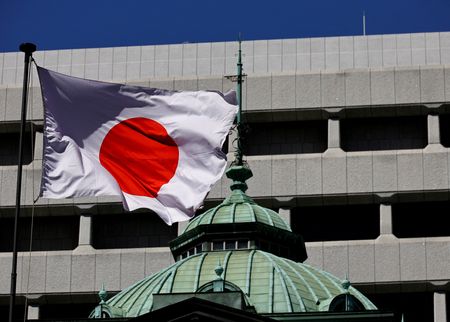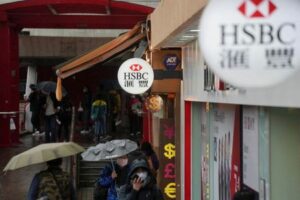By Takaya Yamaguchi and Makiko Yamazaki
SAGA, Japan (Reuters) -Bank of Japan board member Asahi Noguchi said on Thursday the pace of future rate hikes would likely be much slower than that of its global peers in recent policy tightenings, as the impact of rising domestic wages has yet be fully passed onto prices.
“With regard to the pace of policy rate adjustment, it is expected to be slow, at a pace that cannot be compared to that of other major central banks in recent years,” Noguchi said in the text of a speech posted on the BOJ’s website.
“This is because…it would take a reasonable amount of time to reach a situation where prices continue to rise at around 2% as a trend,” he said in the speech, which was delivered to business leaders in the southwestern city of Saga.
Noguchi said in separate comments that the likelihood of achieving the 2% target could be “considerably high” in 2026.
“I personally believe that the situation will improve substantially in a period of two years,” he said at a press conference when asked how long it would take for inflation to hit the target.
He declined to comment on whether there would be another interest rate hike this year, though he said it would depend on economic conditions.
The BOJ ended eight years of negative interest rates and other remnants of its unorthodox policy last month, making a historic shift away from its focus on reflating growth with decades of massive monetary stimulus.
Investors are looking for any clues on how soon the central bank will raise short-term interest rates again from the current 0%-0.1% range, with bets on the timing ranging from between July to the final quarter of this year.
A former academic known for his dovish policy views, Noguchi was among two dissenters on the BOJ’s nine-member board in the decision last month to end eight years of negative interest rates.
Noguchi said in the speech that Japan is now seeing unprecedented wage hikes but that those increases by themselves would not be powerful enough to drive up prices and allow trend inflation to reach 2%.
“It is essential for the BOJ to maintain its ultra-loose monetary policy to seek an appropriate balance in the labour supply-demand,” he said.
At the press conference, he said while monetary policy itself was not driven by exchange rates, it had to take into account how currency rates would impact the cycle of wage and price increases.
(Reporting by Makiko Yamazaki, Leika Kihara and Takaya Yamaguchi; Editing by Tom Hogue and Sam Holmes)





